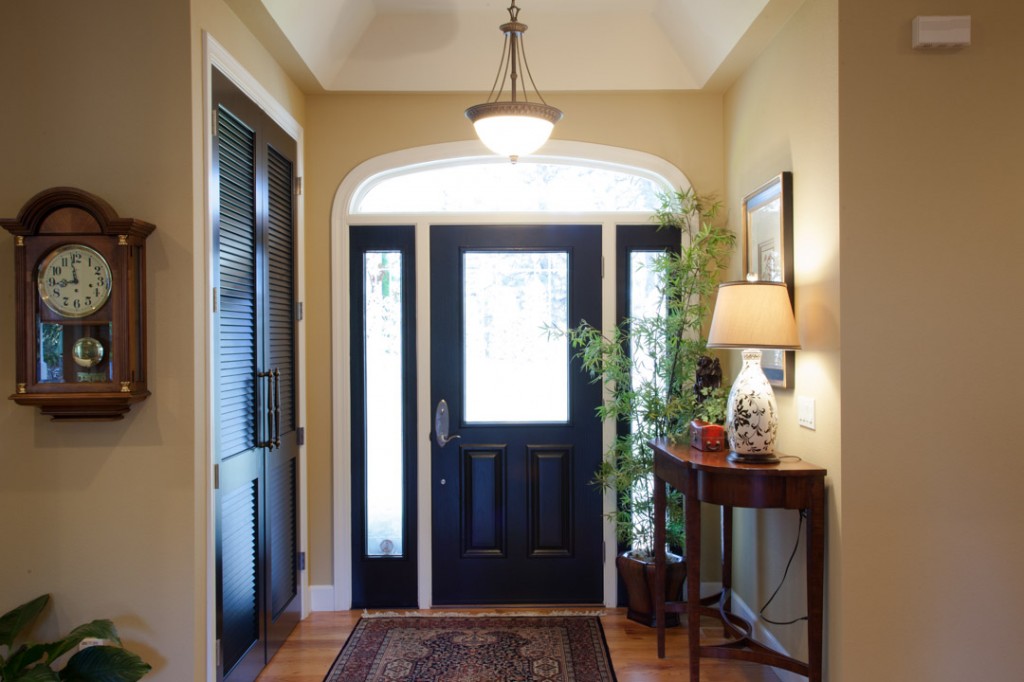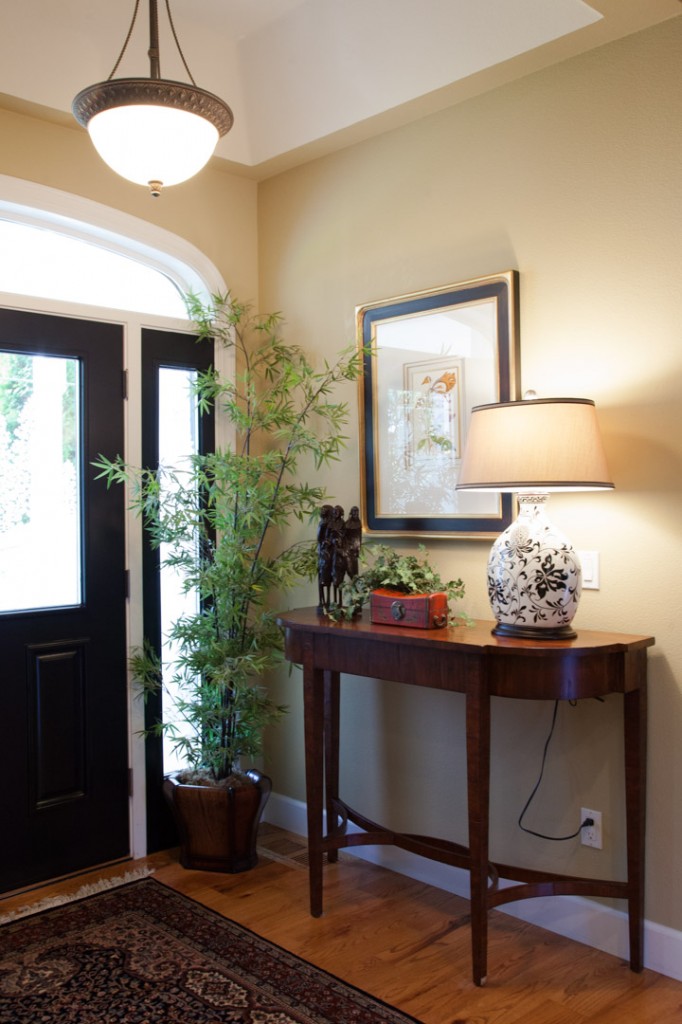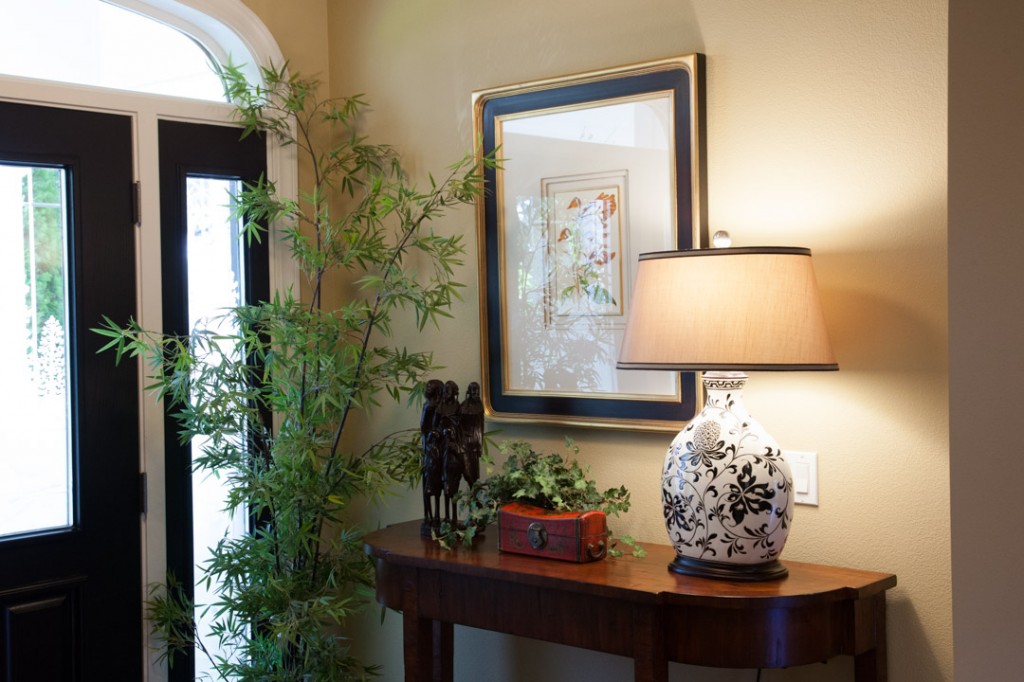What does our home symbolize?
Our home is our stability, sanctuary, and shelter. Both psychologically and physically, our home is the basis for our equilibrium. Some of us need a warm hearth and cozy blanket. Some need the cool of a calming breeze brushing through the space. Depending on our type and preferences, we will create a home that brings us into balance.
And yet, regardless of type, our home should always find its fit in our geographical location and climate. This is why the choice of exterior house colors are so important. Through the exterior colors, our home comes into harmony with its surroundings. Through the exterior colors, our individual lifestyle is expressed in the broader landscape of our neighborhood. By tuning the exterior colors of our home to resonate with the outside world, our inside world also comes into balance.
There are six key elements to consider when choosing a color palette for the exterior of our home. If we pay close attention to these six elements, we can create a musical chord of color, which will sing to us every time we return to it.
1) The color of the earth – Pay attention to the undertones, the soil composition, the colored variations in the rocks. Is there pavement? Is the yard covered with green grass, or red clay, or fallen leaves from many years?
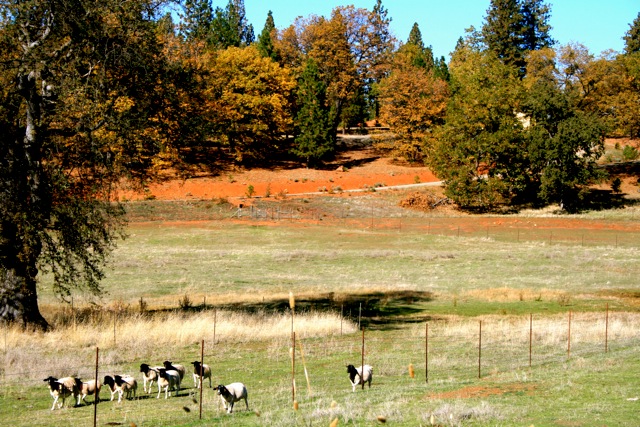
2) The color of the sky – It may be surprising but in different places on our little planet the sky takes on different tones and colors. In some places the colors have more or less brilliance. Some colors are more hazy, more gray, or are effected by air quality. The climate variations over the seasons have a significant influence on how we experience the colors of our home.
3) The home at first sight – How much do you experience the house within the broader landscape? Do you see it freestanding from afar, along a tree-lined driveway, or do you first see it from twenty feet away? Try to observe how much distance and atmosphere there is between you and the house as you first get sight of it.

If the house had been surrounded with lots of Manzanita bushes it would have been very harmonious with this blue-green house color. However the yellow-green grass in front of the house does not harmonize with the house color and is not as pleasing. I have seen more mistakes with harmonizing greens than with any other color
4) The color of vegetation – The plant life around your specific home is also a factor. Even in a homogenous environment, one tree or a set of bushes can cast a very different color on the building. A blue-green versus a yellow-green will interact very differently with the exterior house colors.
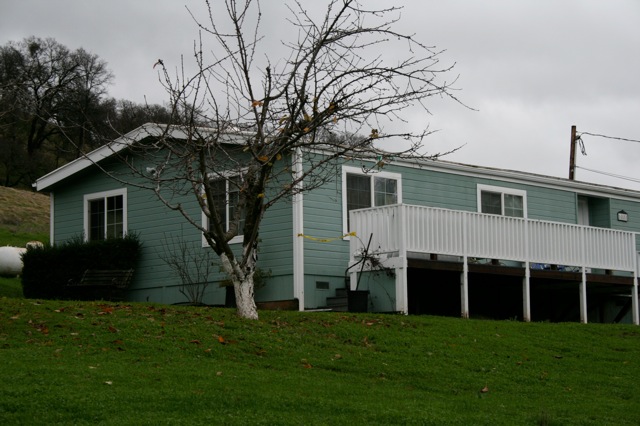
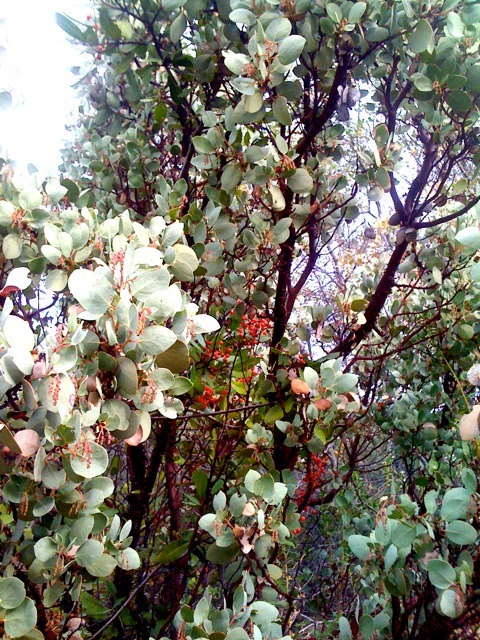
5) The type of material the house is built from – Exterior colors need to be balanced for the material they will reflect from. Mass, weight, and energy of the material all have to be weighed with that of the colors. The importance of the roof color cannot be emphasized enough. You want to marry the roof color and other permanent features to the colors of the house.
6) The architectural style – Lastly, consider the historical style of the architecture of the house. Is it echoing the influences of the Mediterranean, Southwestern, Victorian, Craftsmen, or other style? Is it unique?
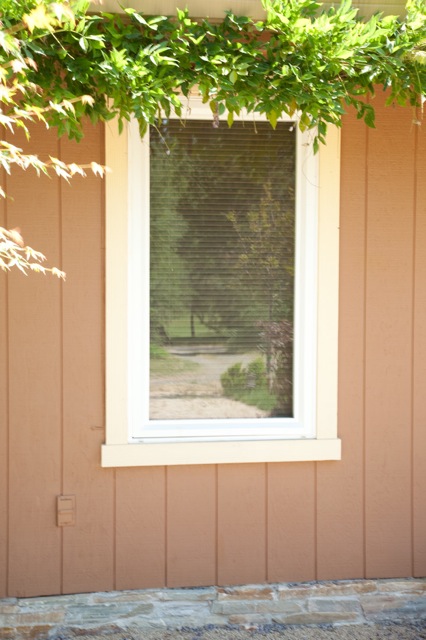
Here the house has stone that harmonizes nicely with the color of the body of the house. The house color has red undertones and therefore juxtaposes the yellow-greens in its surroundings

